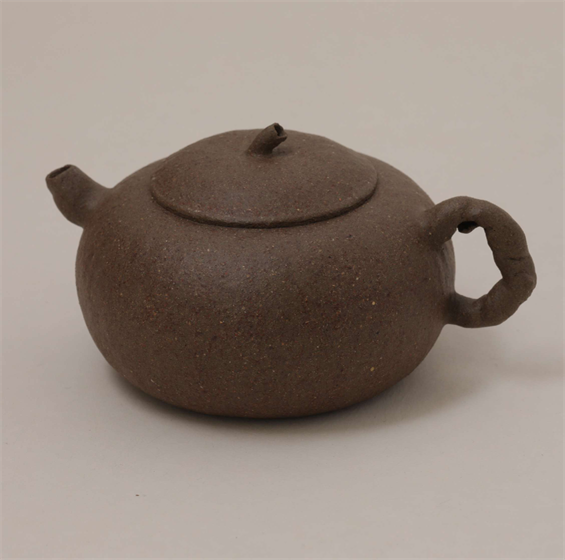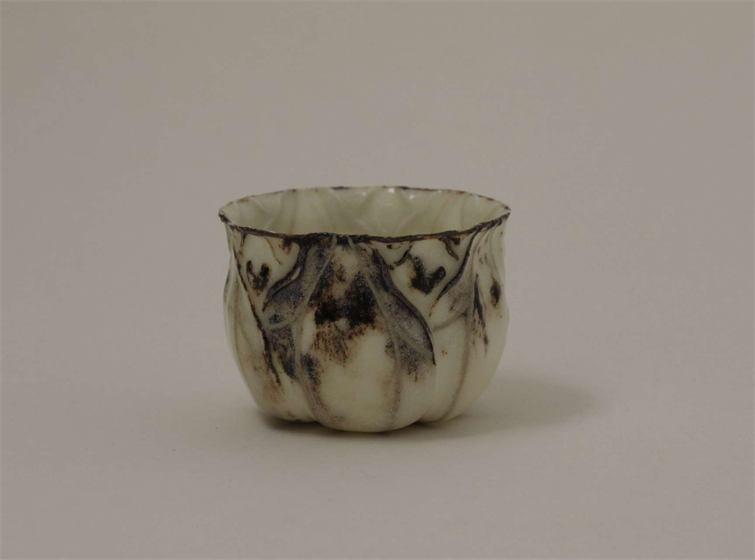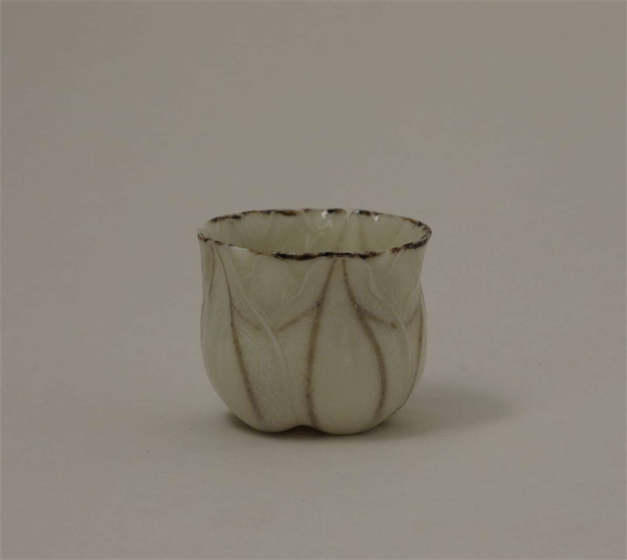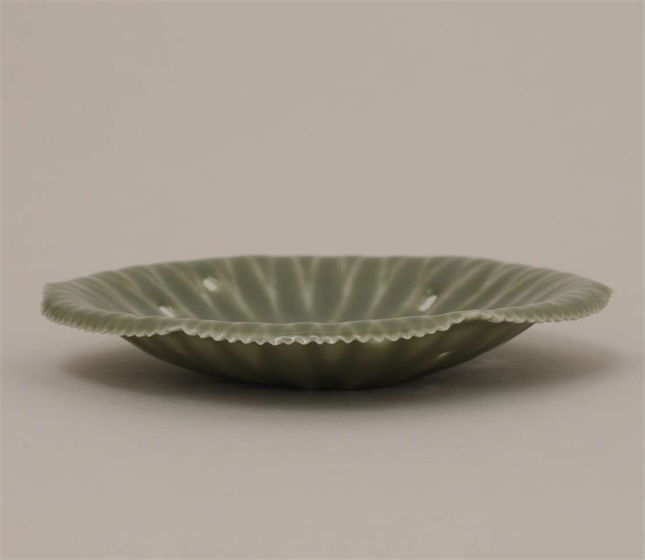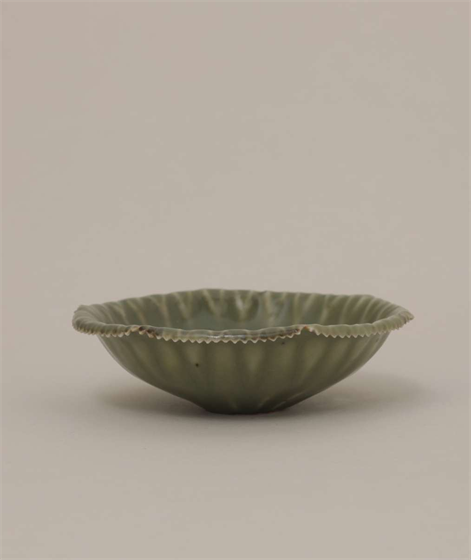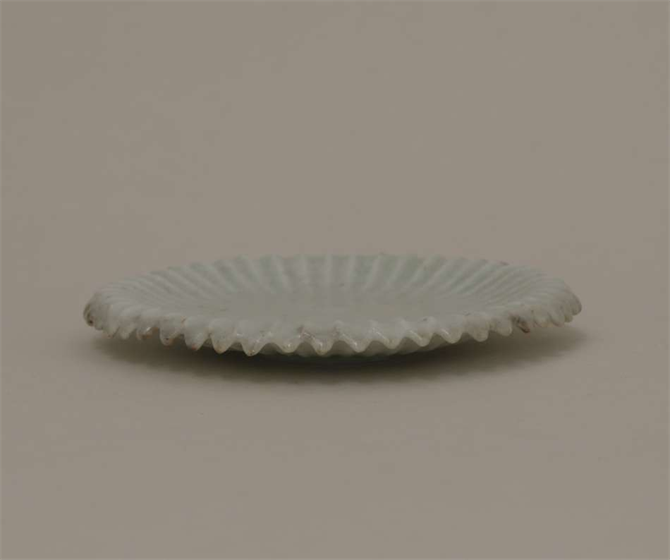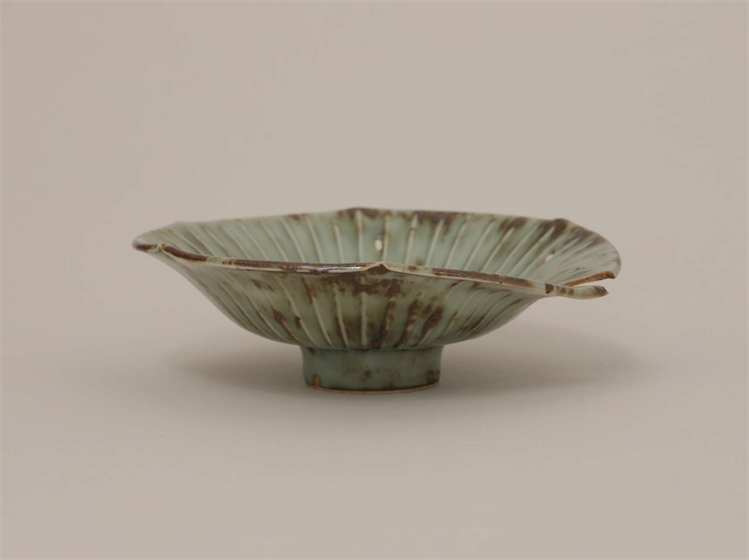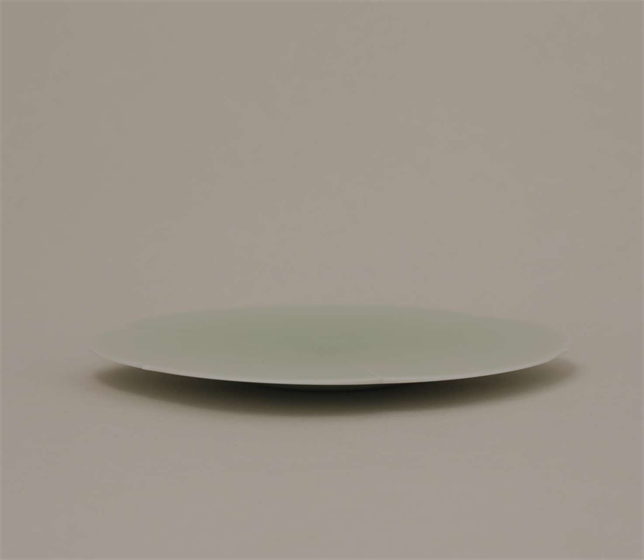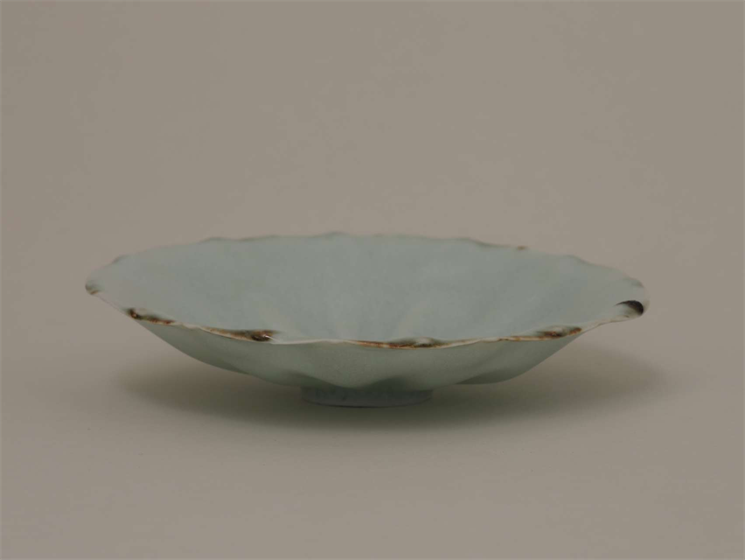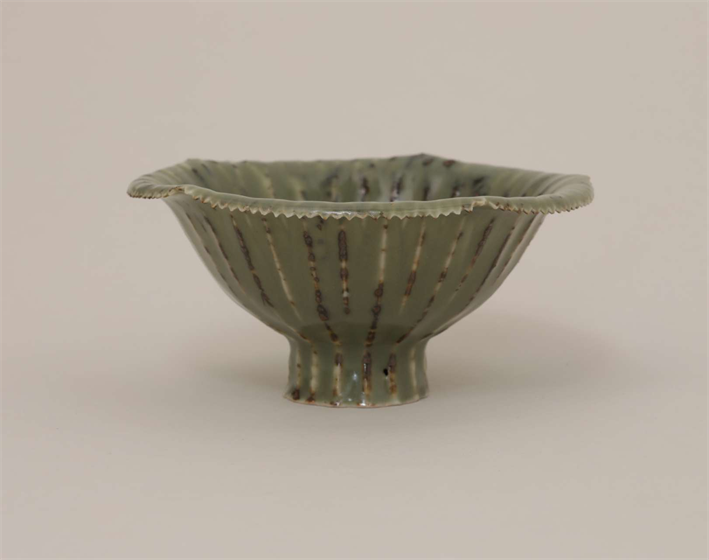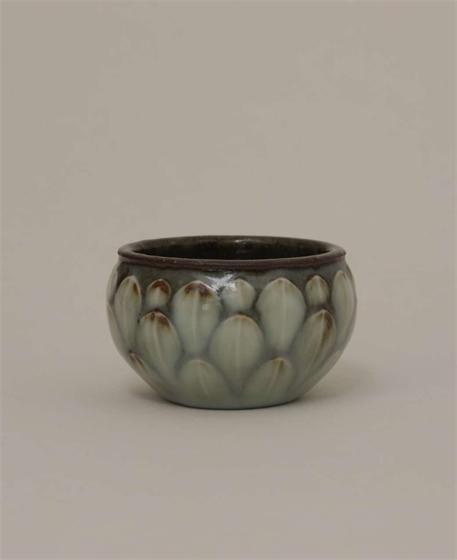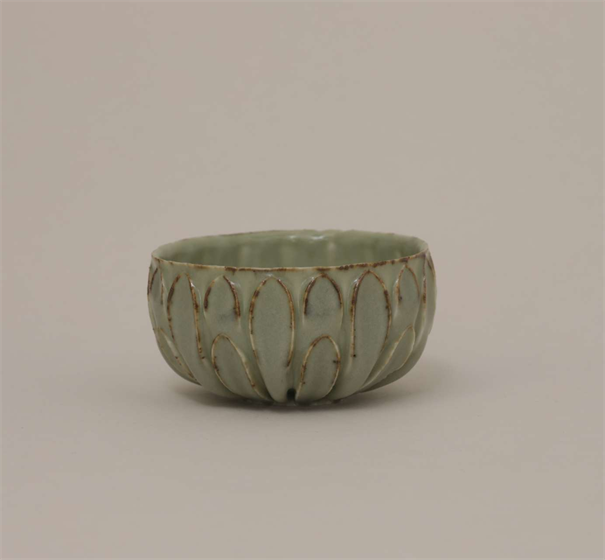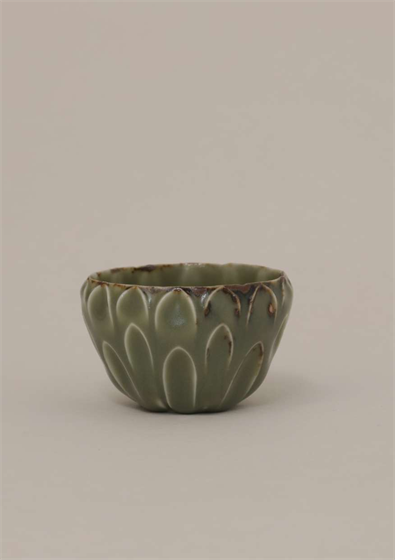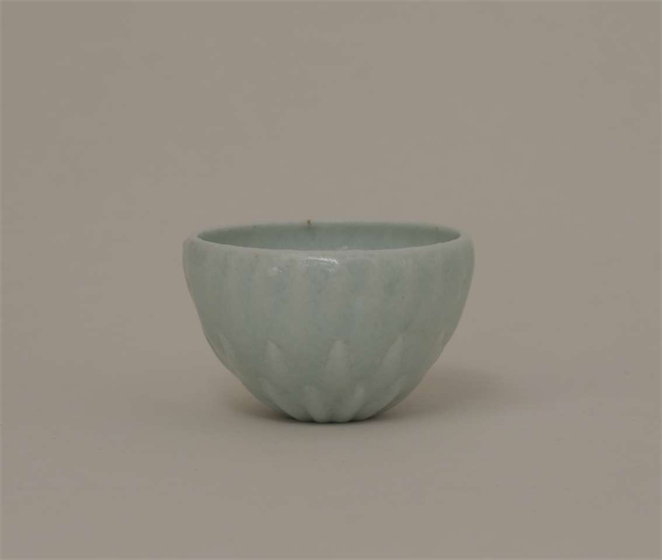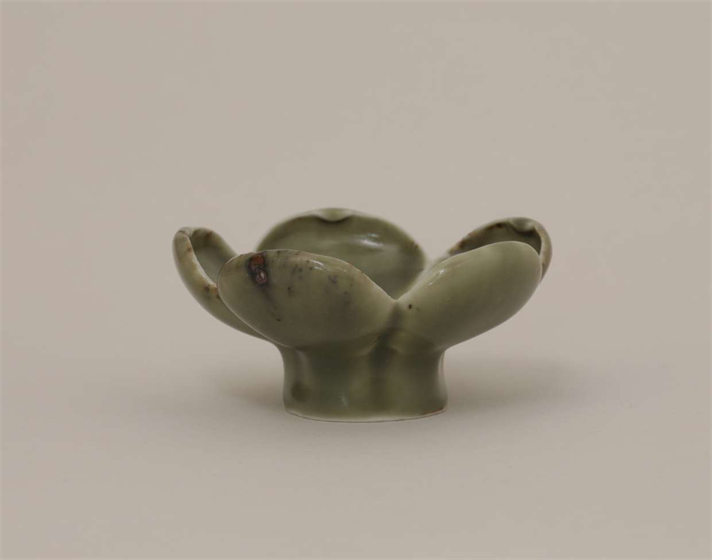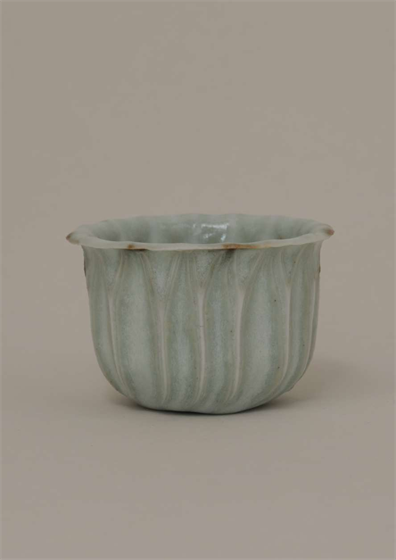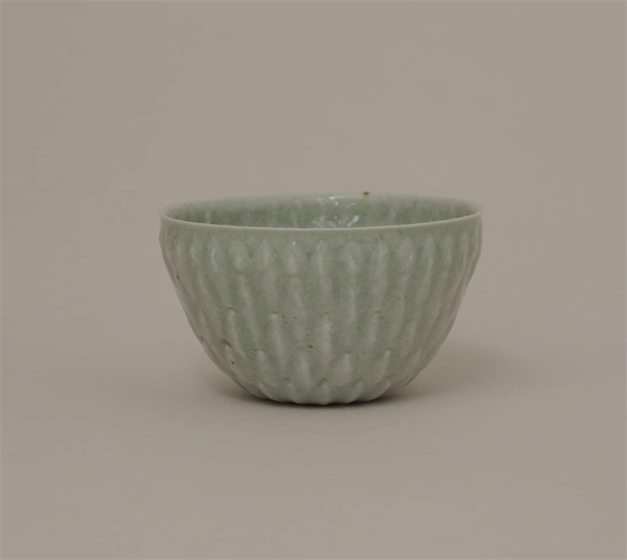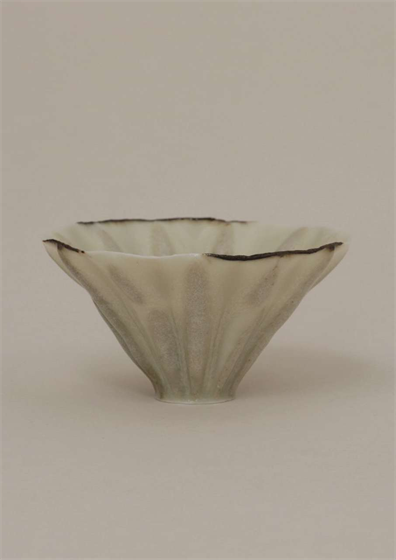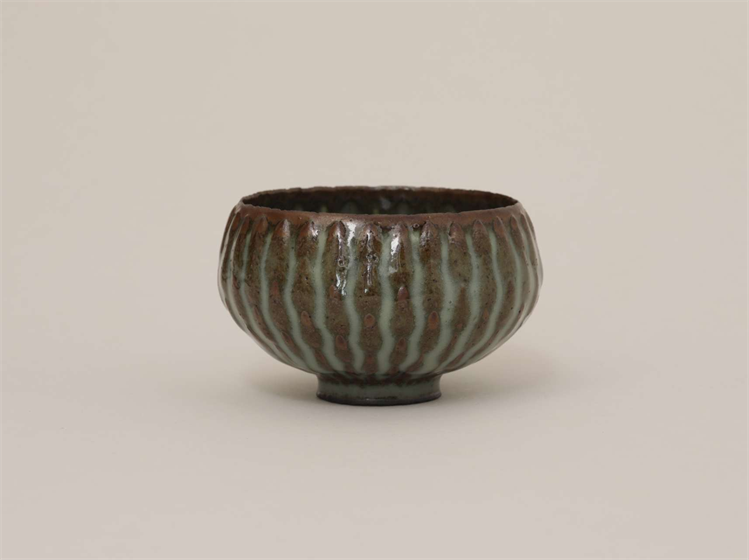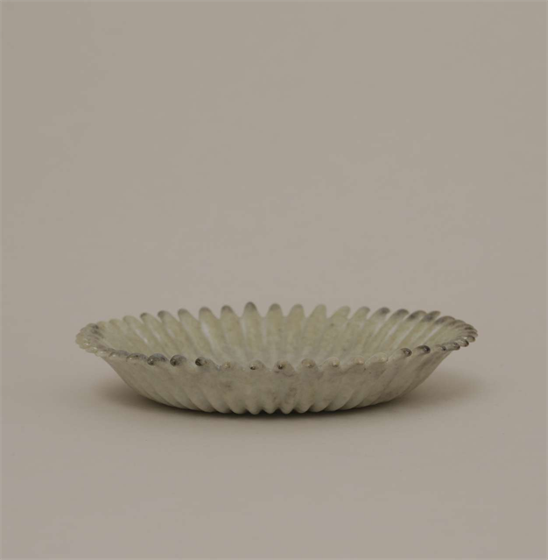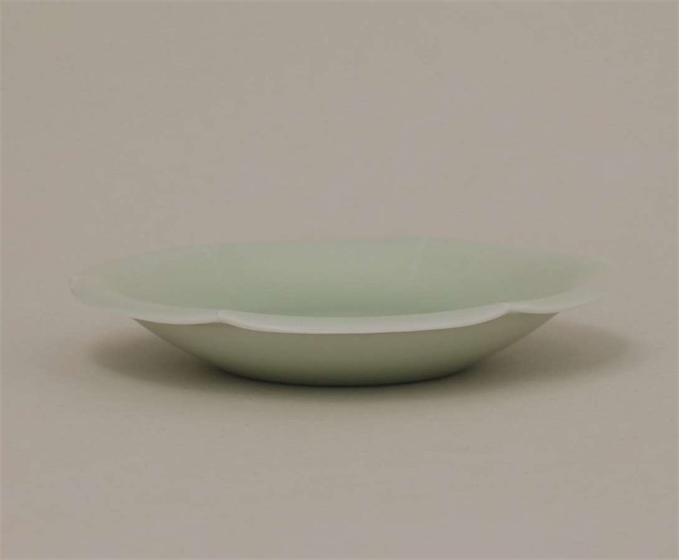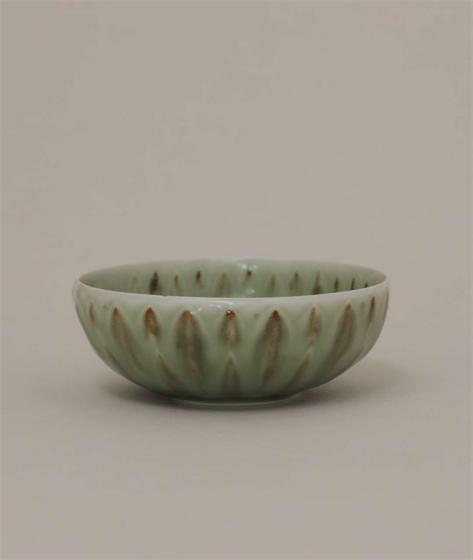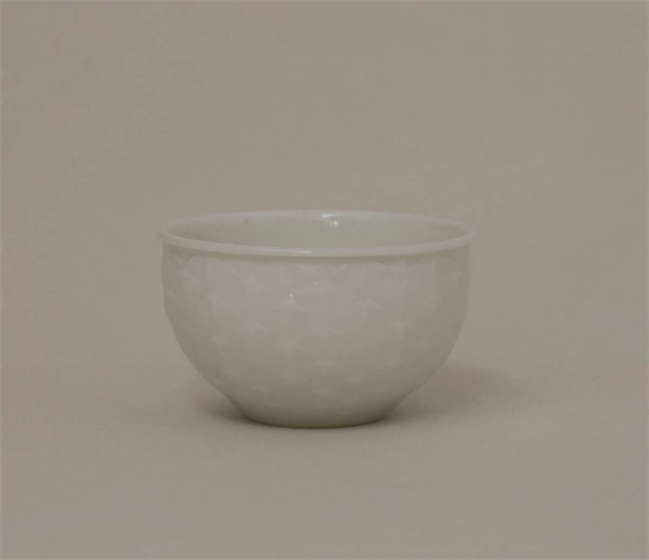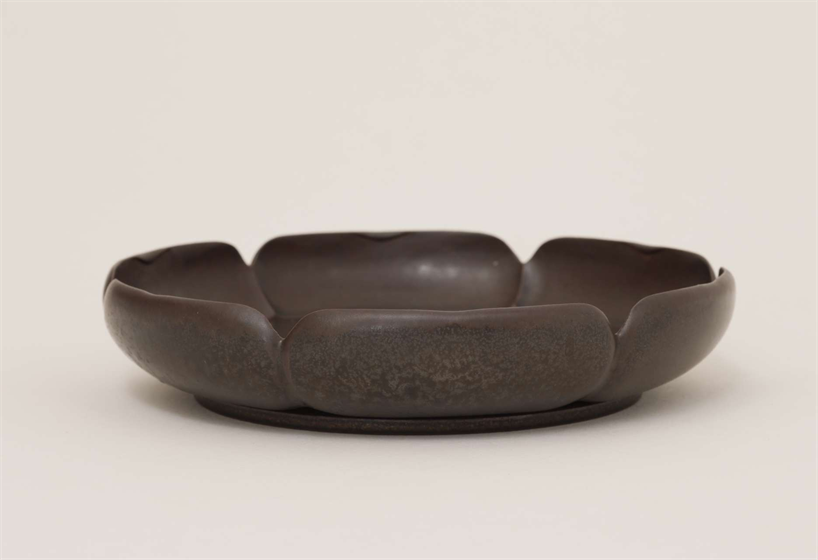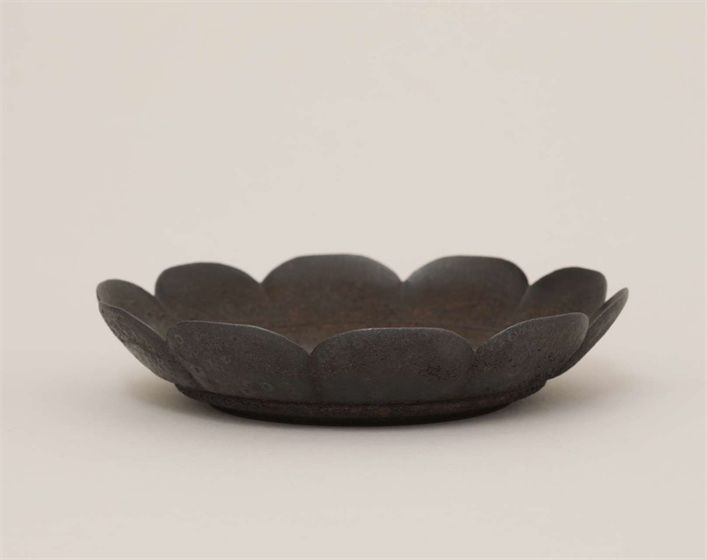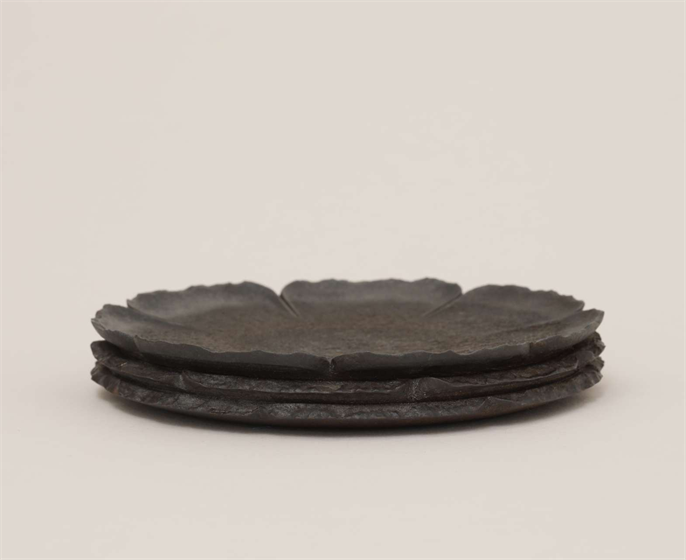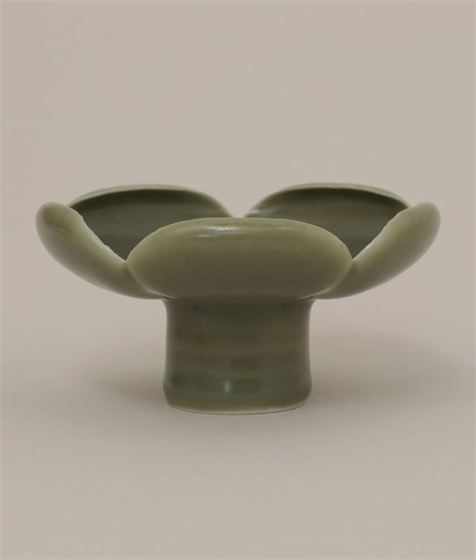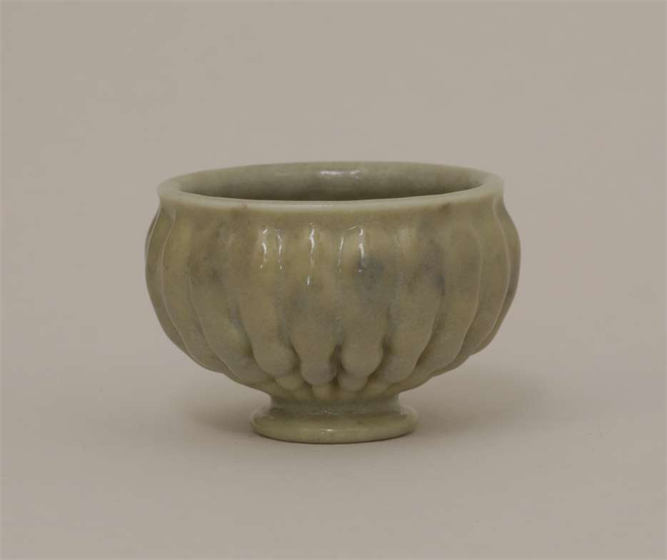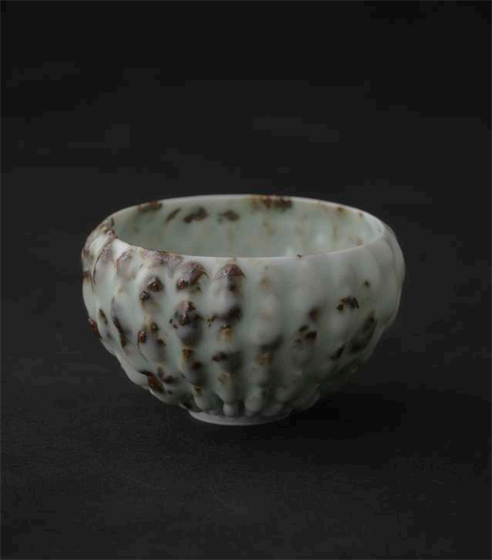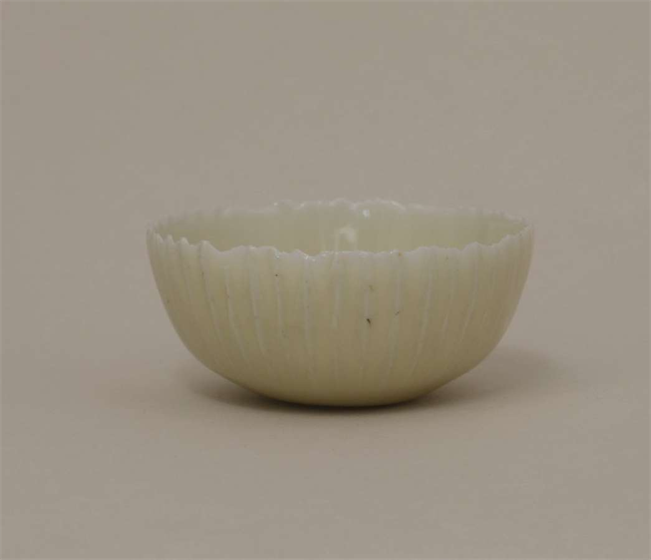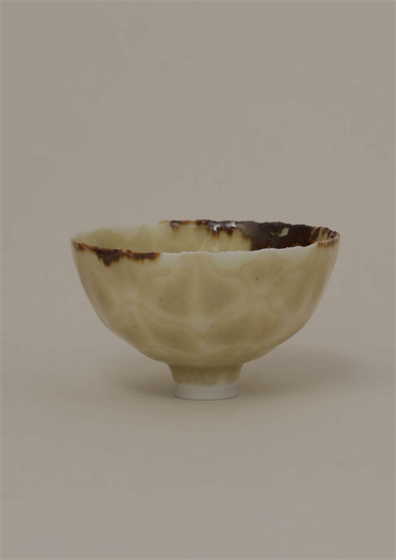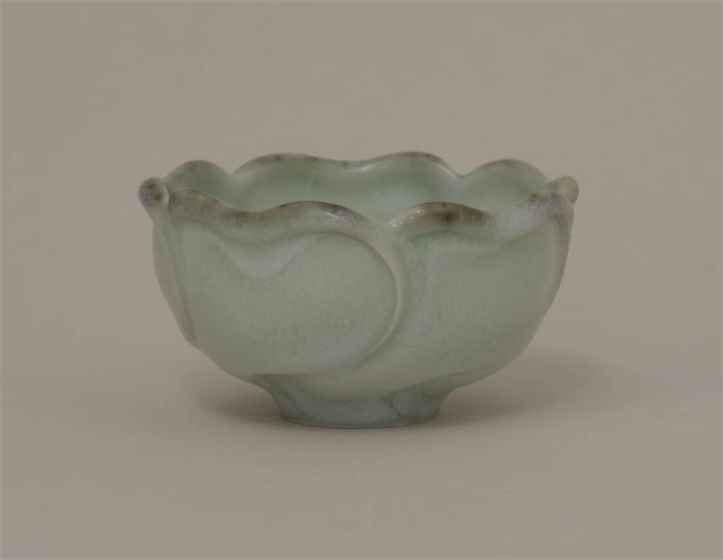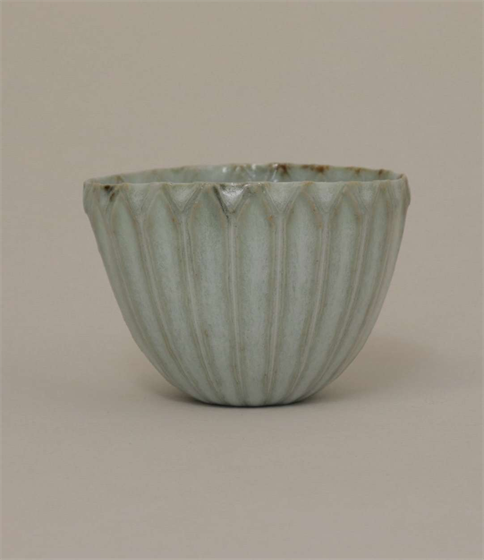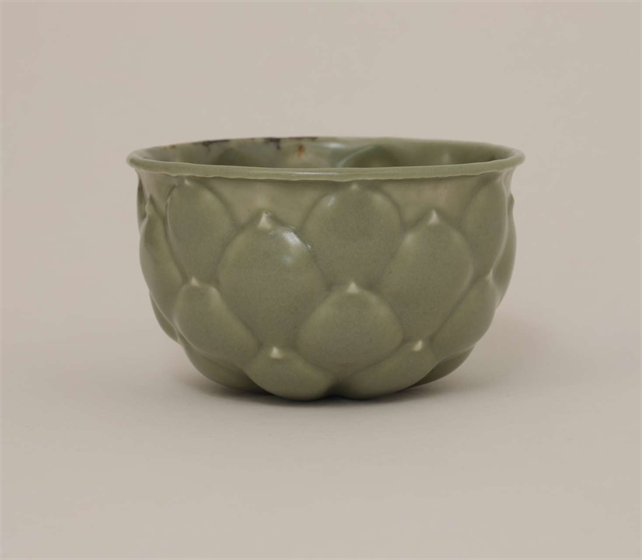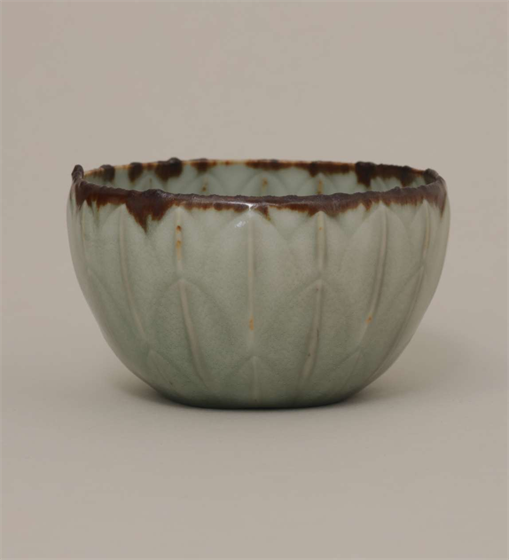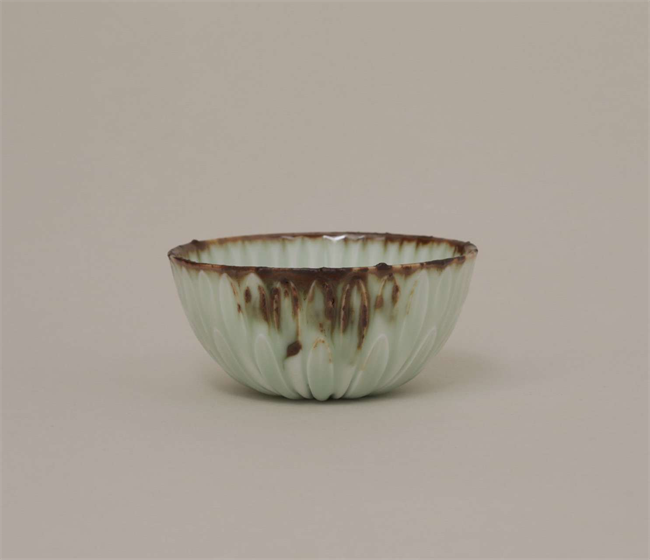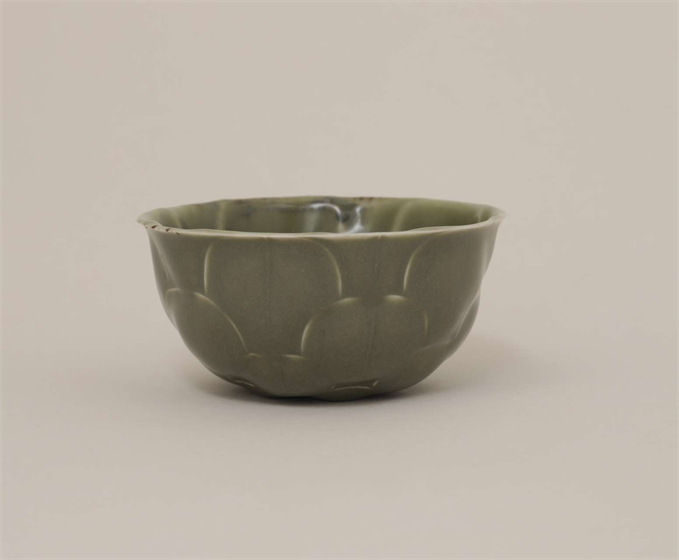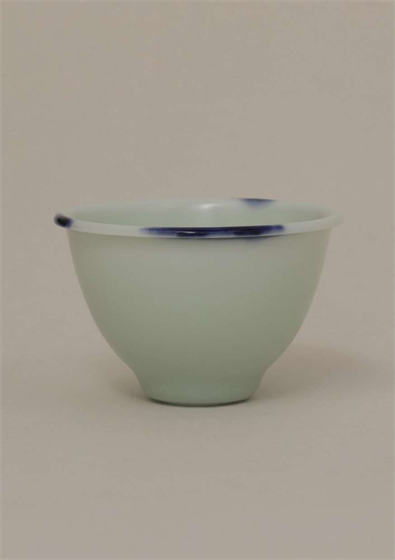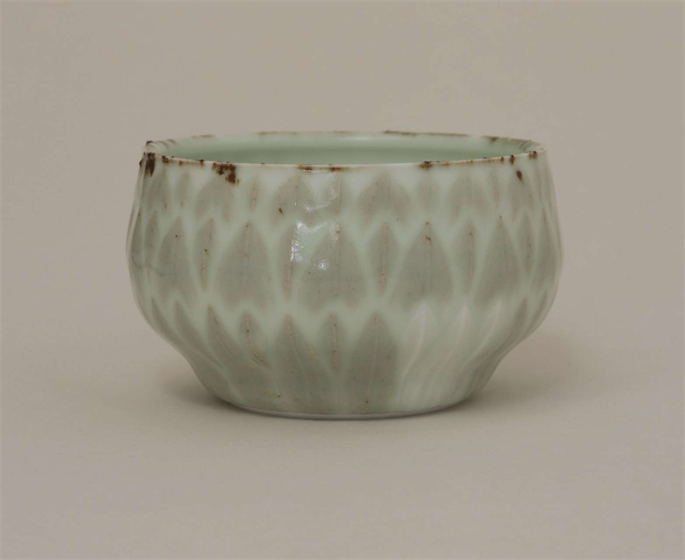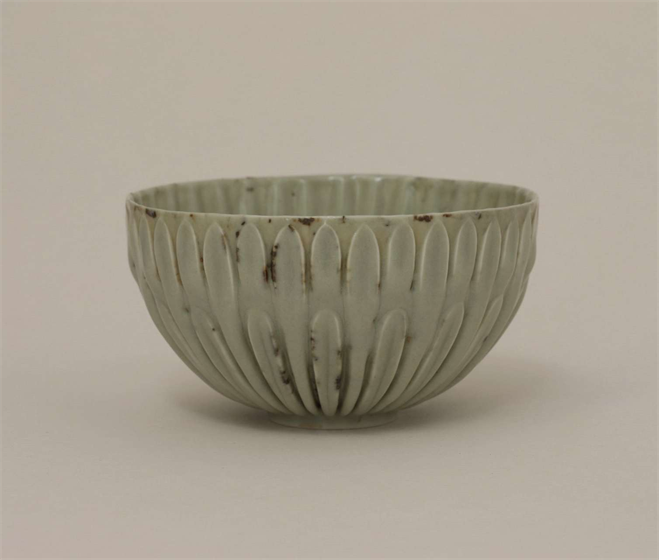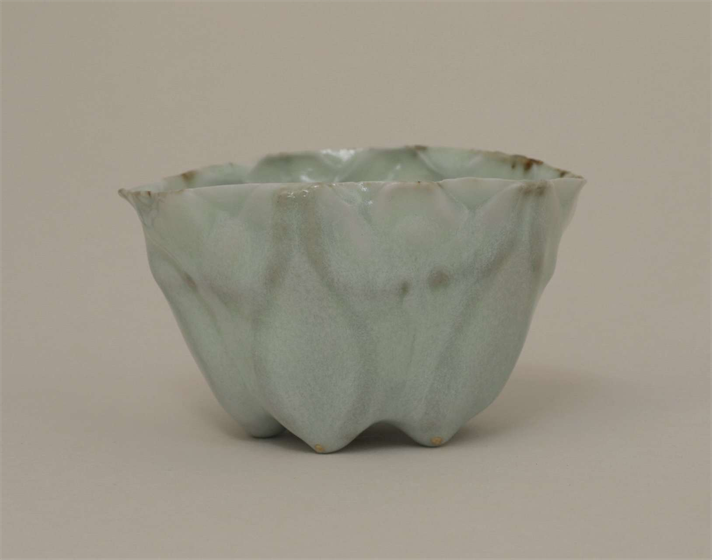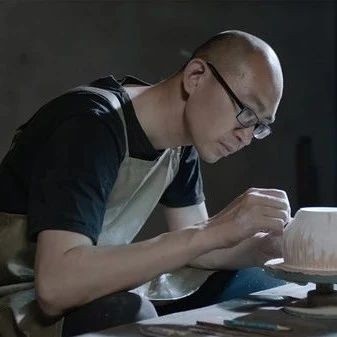Dong’s ceramic language of glaze does not follow the traditional classification of ceramic glazes by color or technique. The construction of his vessels seems closer to organic growth than to conventional methods. In the realm of ancient ceramics, glaze tones, carvings, and appliqué techniques are often seen as decorative styles. However, in Dong’s work, these methods are embedded into the “structure ”of the object itself. Rather than emphasizing decoration, it is the structure that shapes the form. With the participation of light, these “structured” pieces unfold into spatial layers and interlaced dimensions. Subtle, direct, and filled with lingering resonance.
These pieces are mostly vessels that fit in the palm of a hand. Dong Quanbin has never departed from the realm of teaware, and he even envisions it as a lifelong creative pursuit. Tea, teaware, and the way of tea—an art of perception and introspection—ultimately lead back to the human being. This mode of creation is inherently filled with limitations. In the search for beauty, he must also navigate the coordination of variables such as “aroma, temperature, mouthfeel, and smoothness.” Yet it is precisely through these constraints that his work remains rooted in reality, continuously exploring the real—uncertainty and inevitability, the vastness of nature, and the small yet profound existence of the individual. This exploration is philosophical in nature.
As such, Dong’s works do not begin with preconceived concepts; rather, they are the products of experience like ripples of thought. Five years ago, he paused his work on the pottery wheel to write a book on tea, life, and the philosophy of making. The embodied understanding of knowledge and practice became part of the work itself. Today, his creations have taken on new forms and appearances.
"Those who most need 'nothing like the proper light of the mind' are often the ones who most resist it. Yet art can create a gentle dissolving force—one that inevitably accompanies truth in some form, offering people an opportunity to open their hearts to feel freely."
--Dong Quanbin

